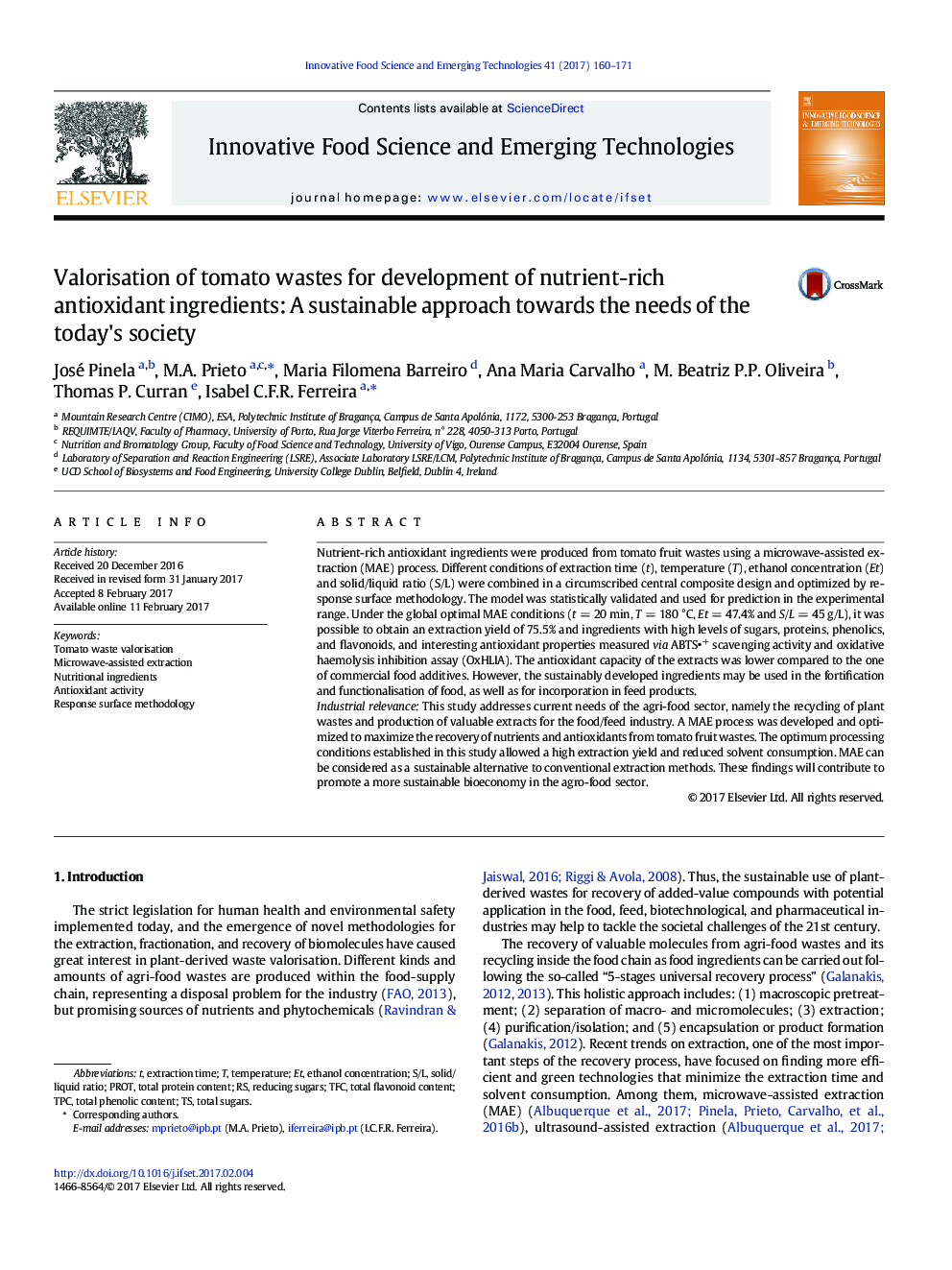| Article ID | Journal | Published Year | Pages | File Type |
|---|---|---|---|---|
| 5521757 | Innovative Food Science & Emerging Technologies | 2017 | 12 Pages |
â¢A circumscribed central composite design was employed to produce extracts of interest.â¢Response surface methodology was used to optimize the processing conditions.â¢Extracts with high levels of sugars, proteins, phenolics and flavonoids were obtained.â¢Extracts exhibit a high antioxidant capacity (measured via ABTS and OxHLIA assays).â¢The developed extracts had potential as fortifying and functionalizing agents for foods.
Nutrient-rich antioxidant ingredients were produced from tomato fruit wastes using a microwave-assisted extraction (MAE) process. Different conditions of extraction time (t), temperature (T), ethanol concentration (Et) and solid/liquid ratio (S/L) were combined in a circumscribed central composite design and optimized by response surface methodology. The model was statistically validated and used for prediction in the experimental range. Under the global optimal MAE conditions (t = 20 min, T = 180 °C, Et = 47.4% and S/L = 45 g/L), it was possible to obtain an extraction yield of 75.5% and ingredients with high levels of sugars, proteins, phenolics, and flavonoids, and interesting antioxidant properties measured via ABTS+ scavenging activity and oxidative haemolysis inhibition assay (OxHLIA). The antioxidant capacity of the extracts was lower compared to the one of commercial food additives. However, the sustainably developed ingredients may be used in the fortification and functionalisation of food, as well as for incorporation in feed products.Industrial relevanceThis study addresses current needs of the agri-food sector, namely the recycling of plant wastes and production of valuable extracts for the food/feed industry. A MAE process was developed and optimized to maximize the recovery of nutrients and antioxidants from tomato fruit wastes. The optimum processing conditions established in this study allowed a high extraction yield and reduced solvent consumption. MAE can be considered as a sustainable alternative to conventional extraction methods. These findings will contribute to promote a more sustainable bioeconomy in the agro-food sector.
